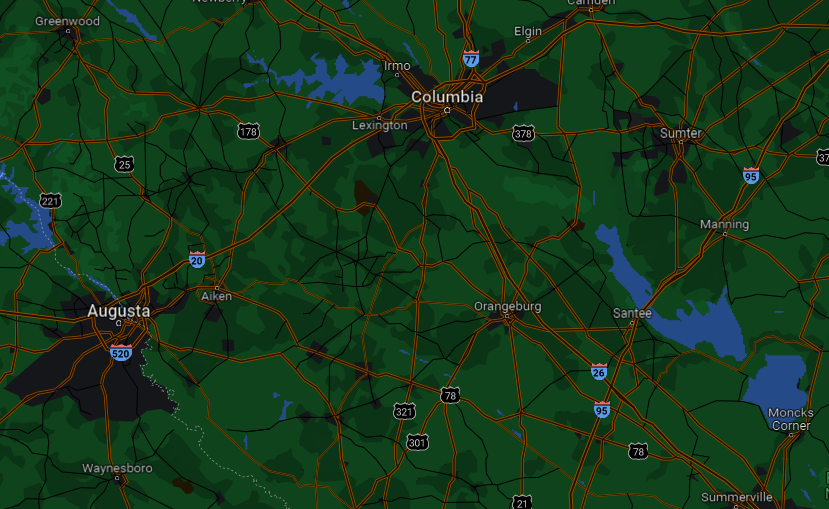There’s a tendency for some people with cognitive issues to ‘wander.’ They can easily get lost and may not be able to adequately communicate their circumstances to people they see, or even police.
An idea that works
Orangeburg, S.C., Public Safety Officer Lt. Jennifer Haig noticed on Facebook that the family of a friend from her high school days was trying to help a loved one who has Alzheimer’s. “And I just started thinking ‘what could be done to make things a little bit easier for them?’” Officer Haig has known the family for years, and Joe Bonnette – the person with Alzheimer’s – was once her volleyball coach at school. So, this was personal.
Jennifer started researching to learn more about the ways Alzheimer’s and other conditions can stress families – and what might be helpful.
This led to a concept, which Lt. Haig shared with her supervisors. And they saw the value. The software program became known as Project Bonnette, named with Joe in mind, but to serve any family in need of this special life-protecting registry.
Here’s how Project Bonnette functions
A family can register a loved one, who may be at-risk of wandering off, with the Department of Public Safety. By doing this, valuable minutes can be saved when that person goes missing. “We’ll have the individual’s information already in our system – with a photo – so our officers can immediately start looking,” explains Public Information Officer Jennifer Van Cleave.
The registry system got its first real run recently when Joe, who the registry is named after, did wander from home. Joe’s wife, “Miss Lyndi, knew exactly what to do,” contacting police, who activated the ‘Joe file’ on the registry, “and our officers were able to immediately go out to start looking for Mr. Joe,” shares Van Cleave. Indeed, Joe was found and safely returned to his home.
Every community has risk potential for people with mental challenges who walk or drive away from home. In Orangeburg, “We do have a major waterway that’s going through town. It could be a danger. But also, just the elements themselves. Down South in the summer it gets really, really hot – and then in the wintertime we have some pretty cold days in South Carolina,” which could quickly lead to weather exposure health dangers, explains Lt. Haig.
“Every time (someone goes missing) is heartbreaking. You never know what’s going to happen – or how it’s going to end. We’ve had great outcomes and some not-so-great outcomes,” over her my more than two decades in law enforcement. “The thing is, every time you’re doing it, that’s all you’re thinking about. That’s all you’re doing. Even when you get off work, it’s still back there in the back of your mind and you’re looking around.” In one missing person case, off-duty, Jennifer picked her son up from an event, then they drove around Orangeburg hoping to find the lost person. “It really gets personal for you, because you don’t want to think of anybody being out there,” alone in the hot sun or blowing cold.
Seeing the response to Project Bonnette, both Officer Jennifers are encouraged. Jennifer Haig says people have contacted her and want to help with the registry program. “It’s kind of a good feeling to know that.”
In our complete podcast interview just below, we asked how people in other towns could go about launching a similar registry for their own area of the country. You’ll also get a sense of how Orangeburg, a city of 13,000 people, is a special place with a definite sense of community.

